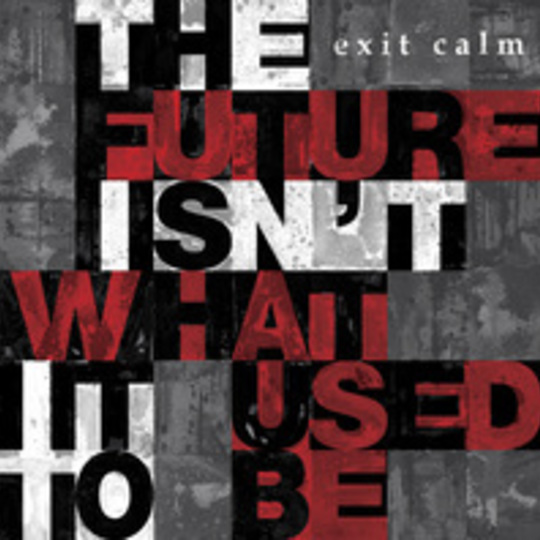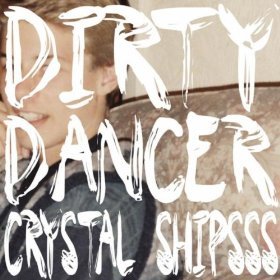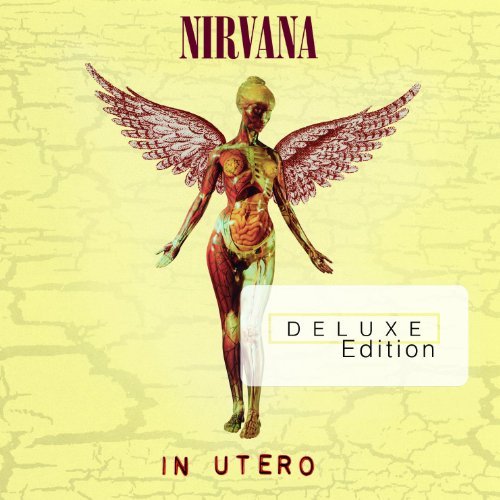South Yorkshire quartet Exit Calm have been standing on the precipice of greatness for the best part of a decade now, lauded from the moment their earliest demo recordings landed on numerous doormats seven years ago and championed by a host of luminaries including Liam Gallagher and The Verve's Nick McCabe. Yet more often than not, destiny hasn't quite worked in their favour. Victims of circumstance, either by way of being in the right place at the wrong time, or simple internal upheavals, it's fair to say lady luck hasn't cast her wayward smile in their direction that often.
So, three years on from the release of their self-titled debut, a record which promised so much and delivered for the most parts, they're back with a new album and to all intents and purposes a new sound. Whereas previous comparisons to The Verve both helped and hindered their early development, the two-year hiatus that saw them retreat back to the drawing board has benefited them well. Using their time wisely to reassess themselves, they've come back with a deftly structured record that flows with a sophisticated grace occasionally lacking on its predecessor. Whether some of that is down to the input of producer Rob McVey remains open to debate. However, what is clear upon hearing The Future Isn't What It Used To Be is McVey's intention to let the songs breathe rather than douse them in atmospherics and overwrought effects.
Indeed, where Exit Calm at times felt like an exercise in matching the expectations unfairly levelled at them by way of comparison, The Future Isn't What It Used To Be sounds exactly as it was intended to be. Measured in the most deliberate sense, fluctuating between soaring, skyscraping anthems and carefully orchestrated reverb-heavy lullabies, its a distinct progression and one that should herald a wave of plaudits its creators deserve.
Opener and lead single 'The Rapture' sets both the band and record's stall out in bombastic fashion, owing more to War-era U2 than any artist Exit Calm have previously found themselves likened to. "You're in the dictionary next to what a bitch is," intones singer and songwriter-in-chief Nicky Smith amidst a tirade of putdowns culminating in _"Where you gonna run to now?" Rob Marshall's guitar crescendos still omnipresent, although more as a guiding light than signature base, Exit Calm have discovered a whole new range of hidden depths since dispersing with the cavernous wall of sound that engulfed much of their former output.
'Albion' nags and broods introspectively before erupting into a semi-conscious mantra during its final third, while 'Fiction' adopts an intuitive stance, centered around its coyly inquisitive hookline "How does it feel on the other side?" Nevertheless, the U2 resonances appear at regular intervals. Recent 45 'When They Rise' and penultimate colossus 'Glass Houses' both chime away incessantly over herculean drum patterns and lolloping rhythms. Elsewhere, 'Higher Bound' and 'Open The Sky' provide tenuous links to Exit Calm's past, both possibly influenced by different stages of (The) Verve, the latter's ethereal majesty taking its cue from A Storm In Heaven similar to Money's The Shadow Of Heaven, the former's mournful veneer mirroring Urban Hymns staple 'Rolling People'.
'Holy War' however is worth the entrance fee alone. It stands proud and rightly so as the album's centre piece and highlight, staking a claim as Exit Calm's finest composition to date. Citing Mephistopheles and Lilith as inspirational figures for the song's poignant lyrics, Smith takes a philosophical angle from the perspective of religion, his urgent cry of "Open your eyes! It's all inside" carried away on a revolving groove that surges incessantly until collapsing under the force of its own weight just beyond the six minutes mark.
In conclusion, The Future Isn't What It Used To Be mixes brutal precision with gleaming elegance, a concoction that ably describes Exit Calm at their most potent.
-
8Dom Gourlay's Score






















